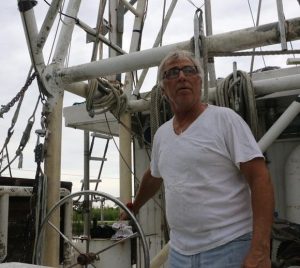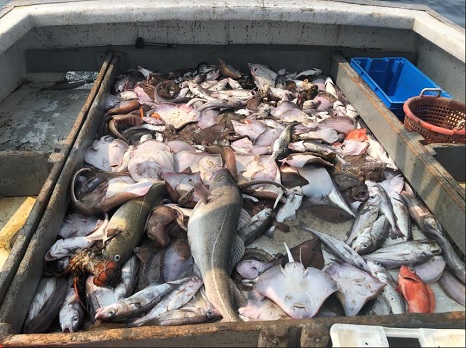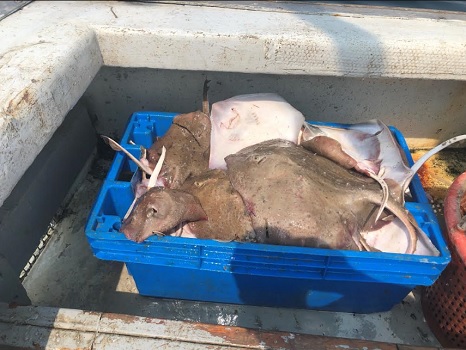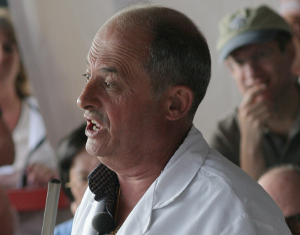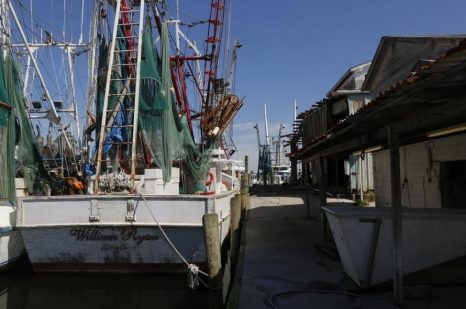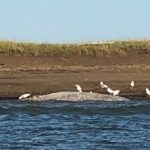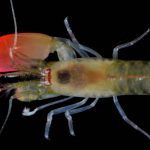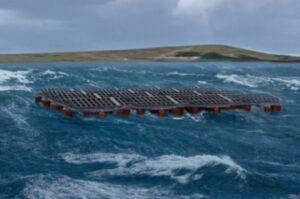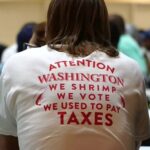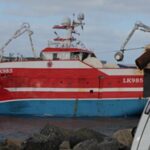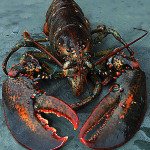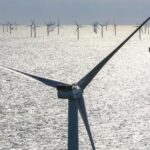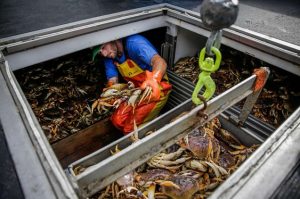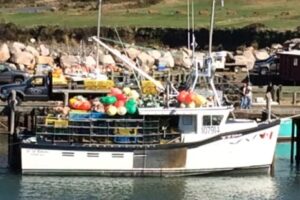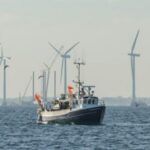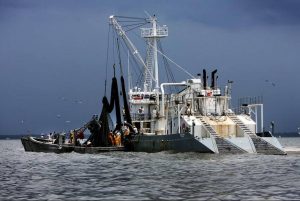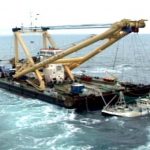Tag Archives: Environmental Defense Fund
Sens. Murphy and Blumenthal propose bill linking commercial fishing and climate change
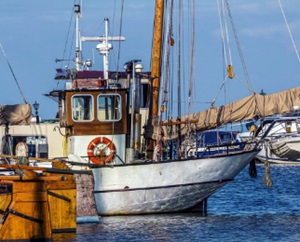 Connecticut’s U.S. Senators Chris Murphy and Richard Blumenthal have teamed with their Massachusetts colleague Elizabeth Warren on a new bill designed to update Atlantic Coast commercial fishing as it relates to climate change. The Supporting Healthy Interstate Fisheries in Transition (SHIFT) Act would require the Department of Commerce to consider the changing geographic ranges of fish populations as it oversees federal fishery management plans and quota allocations for Atlantic states. The senators stated restrictions on the species and number of fish that can be caught in Atlantic waters need to be updated because fish locations have changed in response to warming ocean temperatures and climate change. more, >>click to read<< 08:01
Connecticut’s U.S. Senators Chris Murphy and Richard Blumenthal have teamed with their Massachusetts colleague Elizabeth Warren on a new bill designed to update Atlantic Coast commercial fishing as it relates to climate change. The Supporting Healthy Interstate Fisheries in Transition (SHIFT) Act would require the Department of Commerce to consider the changing geographic ranges of fish populations as it oversees federal fishery management plans and quota allocations for Atlantic states. The senators stated restrictions on the species and number of fish that can be caught in Atlantic waters need to be updated because fish locations have changed in response to warming ocean temperatures and climate change. more, >>click to read<< 08:01
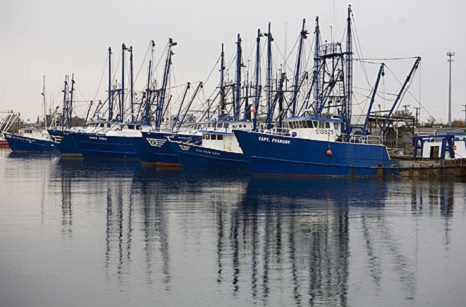
Untangling catch shares with Lee van der Voo – Catch shares have changed fisheries and fishing communities across the U.S.
I recently saw some great reporting by the New Bedford Light and ProPublica about how the billionaire Dutch family that owns Blue Harvest Fisheries has emerged as a force in groundfish fishing off the coast of Massachusetts. These are very wealthy, powerful equity groups and corporations that are acquiring access to the fisheries and passing the cost of owning them and fishing them onto fishermen. There’s been profound disenfranchisement of people who used to have a more personal stake in fishing and seafood. Everyone from indigenous communities in Southwest Alaska whose history with halibut goes back to the beginning of time to small-boat, family operations around the United States everywhere have been losing access. Whole communities have fallen apart over that. >click to read< 08:15

“Looking Back”: The Keep Fishermen Fishing Rally
Measured by any meaningful criteria the Keep Fishermen Fishing rally held on the steps of the Capitol on March 21 was a stunning success. It was attended by thousands of fishermen from as far away as Alaska, twenty one Senators and Members of the House of Representatives, and at least a half a dozen other VIPs made room in their busy schedules to come out and address the people who attended. From the most conservative of the conservatives to the most liberal of the liberals, these politically divergent speakers had one message; fix the Magnuson Act and bring back the balance between conservation and harvest. For the second time at the national level recreational and commercial fishermen – no matter what fisheries they participated in, no matter what their disagreements on allocation or lesser issues were, and no matter where they were from – were standing together and demanding a return to the original intent of the Magnuson Act;,,, >click to read< 08:09
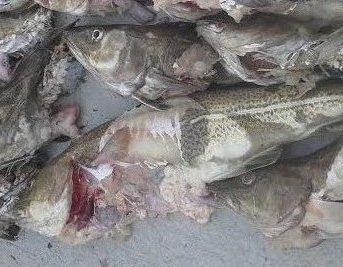
Opinion: If EDF wants to do something about improving cod stocks it needs to address the other factors
The fact is if the Environmental Defense Fund wants to improve cod stock it needs a more holistic approach to cod conservation, taking into account all the factors affecting cod. Not approaching the situation in this manner is just plain wrong. There are a number of other factors that the EDF needs to address if they want to bring back cod stocks. The first is the gigantic seal population that has a dramatic impact on fish populations, including cod. EDF needs to confront the marine mammal conservation community if it wants to conserve cod. more, by Fisherman Theodore Ligenza >click to read< 07:51

Inside The Climate Change Money Machine
For far too long the public has been deluded into believing that groups whose titles indicate their efforts to protect our environment are the Davids in a battle with the Goliath industrial complex of our nation. They tell a story of protecting our air, our water, our forests, and our wildlife. Ron Arnold and Paul Driessen, authors of Cracking Big Green, learned to read IRS form 990 included in the annual reports of non-profit organizations. Here is what they found to have been the incomes of some of the major well-known groups in 2012 alone. The Sierra Club took in $97,757,678,, Environmental Defense Fund took in $111,915,138 (more), But those are the medium-sized incomes, here are the biggies: The Nature Conservancy $949,132,306,,, The U.S. Chamber of Commerce’s report “Sue and Settle: Regulating Behind Closed Doors, >click to read< 10:43
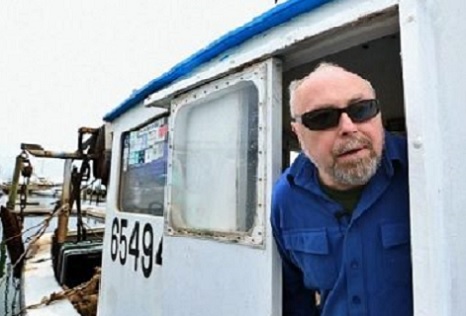
UPDATED: The hidden cost of fishery monitoring
Recently my crewman came into the wheelhouse with a complaint. I am a commercial fisherman and we were on our third consecutive day of carrying at-sea monitors, which we are required to do in 2019 on at least 31% of trips. This is like having your own state policeman ride with you to work to make sure you do not exceed the speed limit. They watch you to make sure you do not throw over any fish that are part of your quota. Because the government wants their monies worth, they have them weigh everything you bring on board. By David Goethel >click to read< 18:41 Dave sent these photo’s which were not included in the article.
100% fishing monitoring is unnecessary, David Goethel
August 13, 2019
I would like to correct some misconceptions and rebut some of the statements made by Ms. Johanna Thomas in her Aug. 2, 2019 opinion, Monitoring will help improve New England’s fisheries. >click to read< Ms. Thomas sites the West coast Groundfish fleet as a success story. That is not the case as told by the fishermen on the West coast. She also fails to mention that 50% of the fleet was bought out in a $60 million-plus dollar buy out prior to the implementation of catch shares. This alone should have rebuilt stocks. >click to read< 21:28
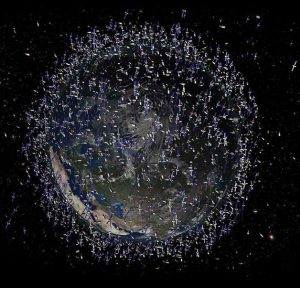
We’ve surrounded the Earth with surveillance satellites, but who is that good for?
It is no longer just advanced militaries and rich corporations who can keep tabs on what people are up to half a world away. Watchdogs such as Global Forest Watch, Global Fishing Watch, and SkyTruth are combing through satellite photos and radar scans to alert authorities to illegal clear-cutting, rogue fishing, mountaintop removals, and other environmental misbehavior. Researchers at the Cornell Lab of Ornithology have exploited Amazon cloud servers to assemble millions of amateur birdwatcher reports into exquisite animated maps that plot the changing abundance of 122 bird species throughout North America. Ranchers are stapling health-monitoring microchips to their livestock. Beekeepers are sticking wireless sensors into their hives. Farmers are planting high-tech electronics into the soil along with their crops. >click to read< 16:17
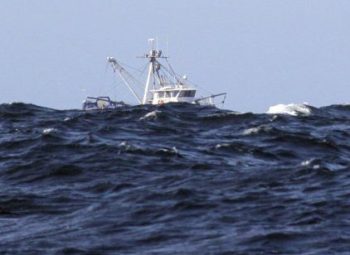
Conservationists, West Coast bottom fishermen embrace ‘grand bargain’
People who love fresh Northwest seafood and the sea should take note of what happened this week in a hotel conference room by Portland’s airport. There, the Pacific Fishery Management Council approved a plan to protect more coral, sponges, reefs and other sensitive animals and formations from the nets of bottom trawlers who work off the West Coast. The measure also offers something for fishermen: a reopening of some prime fishing areas that had been off-limits. >click to read<18:22
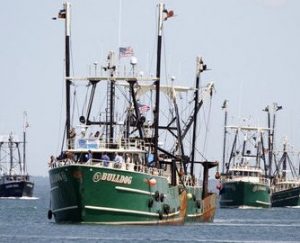
EDF tells NOAA Get multiple buyers for Carlos Rafaels assets, more monitoring
Jim Kendall chuckled as he attempted to grasp the words to describe a letter crafted by Environmental Defense Fund, which it sent to NOAA.,,, The letter pitches two strategies to NOAA in handling the permits and punishment linked to Rafael,,, EDF suggests that NOAA should require multiple buyers of Rafael’s assets and require monitoring of his vessels while also establishing funding for the monitoring. >click to read< 18:41
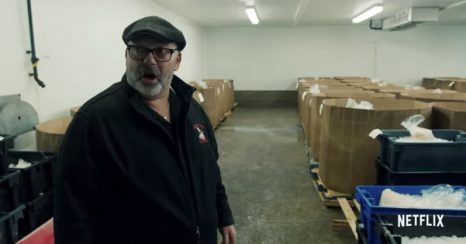
‘Cod is Dead’ uses New Bedford to highlight hurdles affecting fishermen
One of the first scenes in “Rotten: Cod is Dead” opens at night in the Port of New Bedford. Spotlights atop the fishing vessels light the area. A few belong to Carlos Rafael, noted by their green color and “CR” logo.,,, The hour long show looks beyond Rafael and focuses on catch shares in the New England Fishery. >click here to read< 19:05
EDF says Rotten gets it wrong about New England and catch shares – >click here to read< 

Agreement reached in lawsuit over extension of red snapper season
The U.S. Department of Commerce has reached an agreement with two environmental advocacy groups that took it to court over a decision to extend the recreational red snapper fishing season by 39 days in the Gulf of Mexico. Under the agreement, approved Wednesday, 20 December by U.S. District Judge Amy Berman Jackson, the government announced that the extension of the 2017 season “was a one-time action” it has opted not to defend the decision at this time. Further, government officials plan to give a 2018 recreational red snapper season projection by early February and finalize the length of the season around 20 April. Ocean Conservancy and the Environmental Defense Fund,,, click here to read the story 09:54
EDF to partner with Philippine bureau of fisheries to implement fishing reforms
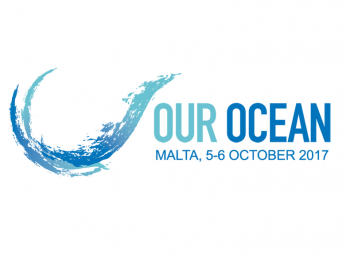 In a dramatic step forward for Asia-Pacific and global ocean conservation, the Philippines has begun implementing sustainable fishing reforms with Environmental Defense Fund serving as a partner to provide critical support on science and policy. The commitment was highlighted at the Our Ocean Conference in Malta, where the Philippines announced it would establish these reforms for its major commercial fisheries by 2022. click here to read the press release 16:58
In a dramatic step forward for Asia-Pacific and global ocean conservation, the Philippines has begun implementing sustainable fishing reforms with Environmental Defense Fund serving as a partner to provide critical support on science and policy. The commitment was highlighted at the Our Ocean Conference in Malta, where the Philippines announced it would establish these reforms for its major commercial fisheries by 2022. click here to read the press release 16:58
Governor Baker: Codfather windfall should fund electronic monitoring
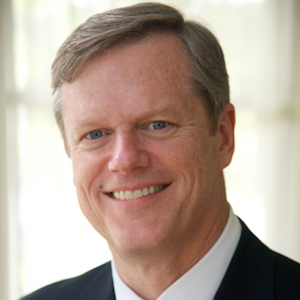 Baker, in a letter to federal fishing regulators late last month, sided with a dozen state lawmakers and local officials who are urging the proceeds from the forfeiture of Rafael’s fishing fleet and any financial penalties tied to his case to be used to pay for electronic catch monitoring. The money to pay for monitoring would relieve a major financial pressure on the state’s fishermen who have to pay for at-sea monitors who ensure compliance with catch-quotas designed to protect the health of groundfish stock. click here to read the story 18:25
Baker, in a letter to federal fishing regulators late last month, sided with a dozen state lawmakers and local officials who are urging the proceeds from the forfeiture of Rafael’s fishing fleet and any financial penalties tied to his case to be used to pay for electronic catch monitoring. The money to pay for monitoring would relieve a major financial pressure on the state’s fishermen who have to pay for at-sea monitors who ensure compliance with catch-quotas designed to protect the health of groundfish stock. click here to read the story 18:25
Environmental groups suing Trump administration for extending red snapper season
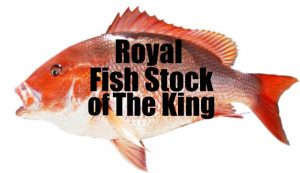 Two environmental groups are suing the Trump administration for stretching the red snapper season in the Gulf of Mexico. The federal government said the economic benefit from allowing weekend fishing this summer by recreational anglers in federal waters outweighs the harm to the red snapper species, which is still recovering from disastrous overfishing. Gulf state officials had lobbied for and praised the change, but the lawsuit says the decision violated several laws by ignoring scientific assessments, promoting overfishing, and failing to follow required procedures. It was filed Monday for the Ocean Conservancy and the Environmental Defense Fund. click here to read the story 13:13
Two environmental groups are suing the Trump administration for stretching the red snapper season in the Gulf of Mexico. The federal government said the economic benefit from allowing weekend fishing this summer by recreational anglers in federal waters outweighs the harm to the red snapper species, which is still recovering from disastrous overfishing. Gulf state officials had lobbied for and praised the change, but the lawsuit says the decision violated several laws by ignoring scientific assessments, promoting overfishing, and failing to follow required procedures. It was filed Monday for the Ocean Conservancy and the Environmental Defense Fund. click here to read the story 13:13
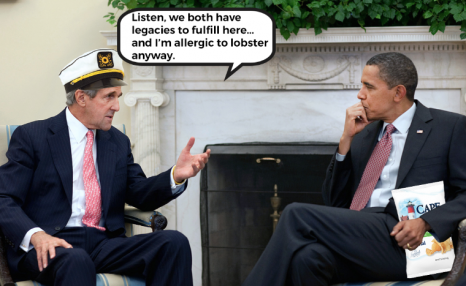
Fishermen, environmentalists continue battle over protected area off Cape Cod
Environmentalists often work with fishermen to reach a middle ground that benefits the environment and eases the regulatory burden on the industry. (baloney) The Environmental Defense Fund, for instance, has partnered with fishermen, both locally and nationally, absorbing some of the cost of new equipment to make electronic monitoring of catches at sea a feasible alternative. But there’s little consensus when it comes to the country’s newest marine park. You either agree there is an urgent need to protect the fragile ecosystems and inhabitants of the 5,000-square-mile Northeast Canyons and Seamounts Marine National Monument, located roughly 130 miles southeast of Cape Cod, or you side with many of the region’s fishermen, who are worried this could be precedent-setting: the first in series of permanent closures in which they have little say. click here to read the story 08:08
Feds (No EDF and Pew) complain new Red Snapper season will hurt species’ recovery
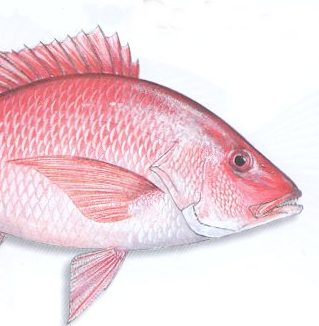 The U.S. Commerce Department says recreational anglers in the Gulf of Mexico will have 39 more days to fish federal waters for red snapper,,,However, an environmental group and a charter captains’ association estimate that private anglers will take nearly triple their allocated 3.4 million-pound (1.5 million kilogram) quota of the sport and panfish under the plan, potentially canceling next year’s recreational season entirely.,,“The current system is failing private anglers and they deserve a fix,” Mike Jennings, president of the Charter Fisherman’s Association said in a prepared statement.,,, Earlier Wednesday, his group and the Environmental Defense Fund had emailed Commerce Secretary Wilbur Ross, asking him to delay any decision until he had good scientific estimates of the likely catch. click here to read the story 16:45
The U.S. Commerce Department says recreational anglers in the Gulf of Mexico will have 39 more days to fish federal waters for red snapper,,,However, an environmental group and a charter captains’ association estimate that private anglers will take nearly triple their allocated 3.4 million-pound (1.5 million kilogram) quota of the sport and panfish under the plan, potentially canceling next year’s recreational season entirely.,,“The current system is failing private anglers and they deserve a fix,” Mike Jennings, president of the Charter Fisherman’s Association said in a prepared statement.,,, Earlier Wednesday, his group and the Environmental Defense Fund had emailed Commerce Secretary Wilbur Ross, asking him to delay any decision until he had good scientific estimates of the likely catch. click here to read the story 16:45
Catch share threat is back
 As we enter 2017, the biggest threat to commercial and recreational fishermen in the South Atlantic is back: private ownership of the snapper-grouper fishery through a catch share program. Fishery stakeholders have year after year overwhelmingly rejected any form of catch shares. Most recently, 97 percent of the comments on the South Atlantic Fishery Management Council’s long-range snapper-grouper management plan opposed catch shares — a plan the council promised would be “stakeholder-driven.” Yet, SAFMC Vice Chair Charlie Phillips has revealed that he, SAFMC member Chris Conklin and former SAFMC member Jack Cox, all commercial snapper-grouper fleet owners and dealers, are leading an effort to get a voluntary “pilot” catch share program in place this year using an “Exempted Fishing Permit,” which is a back door way to avoid the normal fishery regulation approval process. In a recent article in the Charleston, SC Post & Courier, Vice Chair Phillips touts that the permit would “allow them to catch all year.” The article also reveals that the Seafood Harvesters of America, which has been funded with over $300,000 from the radical Environmental Defense Fund, is supporting the EFP application. The Seafood Harvesters represent some of the biggest catch share owners in the nation. Read the post here 11:06
As we enter 2017, the biggest threat to commercial and recreational fishermen in the South Atlantic is back: private ownership of the snapper-grouper fishery through a catch share program. Fishery stakeholders have year after year overwhelmingly rejected any form of catch shares. Most recently, 97 percent of the comments on the South Atlantic Fishery Management Council’s long-range snapper-grouper management plan opposed catch shares — a plan the council promised would be “stakeholder-driven.” Yet, SAFMC Vice Chair Charlie Phillips has revealed that he, SAFMC member Chris Conklin and former SAFMC member Jack Cox, all commercial snapper-grouper fleet owners and dealers, are leading an effort to get a voluntary “pilot” catch share program in place this year using an “Exempted Fishing Permit,” which is a back door way to avoid the normal fishery regulation approval process. In a recent article in the Charleston, SC Post & Courier, Vice Chair Phillips touts that the permit would “allow them to catch all year.” The article also reveals that the Seafood Harvesters of America, which has been funded with over $300,000 from the radical Environmental Defense Fund, is supporting the EFP application. The Seafood Harvesters represent some of the biggest catch share owners in the nation. Read the post here 11:06
The election has enviro groups all worked up! – Reactions to Trump victory trickle in from seafood industry
 Seafood companies and industry groups have begun to issue statements and responses to the election of Donald Trump as president of the United States. Trump has said little about the seafood industry directly, but he has expressed favor for policies that reduce environmental barriers preventing the further development American industry, which may lead to changes in the management of U.S. fisheries. Trump has also taken a strong stand against free-trade agreements, and if he acts on pledges to scuttle the Trans-Pacific Partnership framework, add tariffs on Chinese imports and renegotiate or withdraw from the North America Free Trade Agreement, it will likely have an significant effect on the global seafood trade.,, Fred Krupp, the president of nonprofit advocacy group Environmental Defense Fund (EDF), posted his thoughts on the election in a blog post on EDF’s website. “The election of Donald Trump has profoundly altered the landscape in which environmentalists work. While environmental issues weren’t central to the campaign, President-elect Trump took positions during the campaign that were directly counter to ours — and contradicted by science,” Krupp wrote. “We are still assessing the challenges that lie ahead, but this much is clear: The next few years will bring some big fights and also some unpredictable fluidity.” World Wildlife Fund President and CEO Carter Roberts also issued a statement,,, Read the story here 13:53
Seafood companies and industry groups have begun to issue statements and responses to the election of Donald Trump as president of the United States. Trump has said little about the seafood industry directly, but he has expressed favor for policies that reduce environmental barriers preventing the further development American industry, which may lead to changes in the management of U.S. fisheries. Trump has also taken a strong stand against free-trade agreements, and if he acts on pledges to scuttle the Trans-Pacific Partnership framework, add tariffs on Chinese imports and renegotiate or withdraw from the North America Free Trade Agreement, it will likely have an significant effect on the global seafood trade.,, Fred Krupp, the president of nonprofit advocacy group Environmental Defense Fund (EDF), posted his thoughts on the election in a blog post on EDF’s website. “The election of Donald Trump has profoundly altered the landscape in which environmentalists work. While environmental issues weren’t central to the campaign, President-elect Trump took positions during the campaign that were directly counter to ours — and contradicted by science,” Krupp wrote. “We are still assessing the challenges that lie ahead, but this much is clear: The next few years will bring some big fights and also some unpredictable fluidity.” World Wildlife Fund President and CEO Carter Roberts also issued a statement,,, Read the story here 13:53
The Race to Spread the EDF IFQ Recreational Fishery Propaganda.
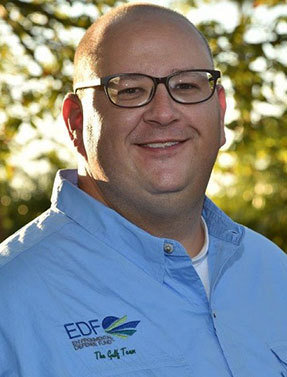 Gulf fisheries were in dire condition before the Environmental Defense Fund teamed with local fishermen across the Gulf, from Florida to Texas, to help turn things around. In those days, fishermen were stuck under failing management that perpetuated overfishing and reduced the population of Gulf red snapper to just 4 percent of its historic level. Due to misguided and ineffective rules, the commercial fleet was in a derby system — a race to catch fish that was dangerous and destructive to both fish and fishermen’s businesses. The catch limits that were put in place to solve the problem were not working. Seeing their livelihoods collapsing under failing management, commercial fishermen voted twice, in supermajorities, to implement a system known as catch shares or individual fishing quotas, which went on the water in 2007. EDF is proud to have worked with our fishing partners on this system. Read the story here 10:22
Gulf fisheries were in dire condition before the Environmental Defense Fund teamed with local fishermen across the Gulf, from Florida to Texas, to help turn things around. In those days, fishermen were stuck under failing management that perpetuated overfishing and reduced the population of Gulf red snapper to just 4 percent of its historic level. Due to misguided and ineffective rules, the commercial fleet was in a derby system — a race to catch fish that was dangerous and destructive to both fish and fishermen’s businesses. The catch limits that were put in place to solve the problem were not working. Seeing their livelihoods collapsing under failing management, commercial fishermen voted twice, in supermajorities, to implement a system known as catch shares or individual fishing quotas, which went on the water in 2007. EDF is proud to have worked with our fishing partners on this system. Read the story here 10:22
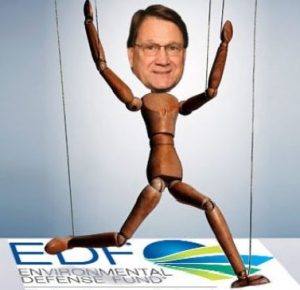
Is Environmental Defense Fund Controlling Louisiana’s Department Of Wildlife And Fisheries?
By now our readers are surely familiar with the very strange behavior of Louisiana Department of Wildlife and Fisheries secretary Charlie Melancon with respect to his opposition to a bill brought by most of Louisiana’s congressional delegation that would put individual Gulf states, rather than the federal government, in control of the red snapper fishery in the Gulf of Mexico. If you’re not up to speed on Melancon’s antics and escalating feud with a key member of the delegation, Baton Rouge congressman Garret Graves, we offered a primer here. Most of the speculation you may have seen involves the idea that several of the larger commercial fishing concerns along the Gulf coast, who benefit from a crony-capitalist scheme wherein shares of the red snapper market have been allocated based on incumbency – the owners of those concerns have been given the moniker “Sea Lords” since the red snapper catch largely resembles a feudal system of sorts – have essentially bought Melancon and his opposition to the bill Graves is proposing is a product of that purchase. Graves’ idea to put the state in charge of the red snapper fishery would break up the current allocation scheme and put the Sea Lords out of commission in Louisiana, or at least make their incumbency a matter which would be up for grabs. Read the story here 08:10
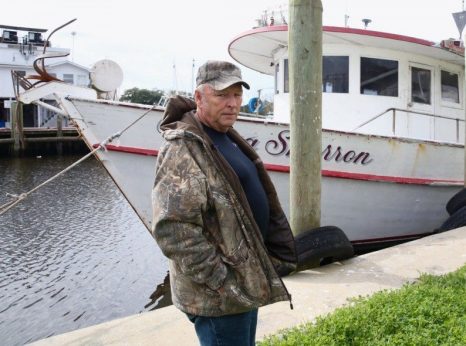
How a ‘rogue’ environmental group transformed (HIJACKED) American fisheries
One of the nation’s largest environmental groups — bankrolled with $50 million from the heirs to the Walmart fortune — has spent millions of dollars pushing a wholesale change in how the U.S. manages its fisheries, an AL.com investigation reveals. Critics blame the Environmental Defense Fund effort for hurting fishing communities on every coast, from Kake, Alaska, and Gloucester, Mass., to Bayou La Batre, Alabama. The group has pushed a system that turns the right to catch a pound of fish into a private commodity that can be bought and sold like a share of stock on Wall Street. The government then gives these shares to individual commercial fishermen, granting them the right to catch that fish, or lease or sell the right to catch it to another fisherman. EDF gained unprecedented access to the levers of power in 2008 when President Obama appointed the vice-chair of EDF’s board – Jane Lubchenko — as the head of the National Oceanic and Atmospheric Administration, which manages the nation’s fish stocks. Once in power, Lubchenko, a respected but little known fisheries professor in Washington State, enacted a national catch share policy that mirrored EDF’s longtime goals. Read this story. Read the story here 09:21
New England: Fishing advocates praise allocation of funds for electronic monitoring
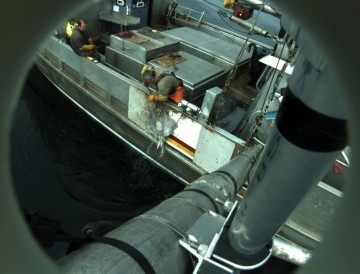 Advocates for electronic monitoring technology in the commercial fishing industry are pleased that the Senate Appropriations Committee has secured federal resources to help defray costs associated with regulating catch sizes.On Thursday, U.S. Senators Kelly Ayotte (R-NH) and Jeanne Shaheen (D- NH) announced that $3 million has been set aside for the development and installation of this technology. Fishermen hope it will replace the current model of in-person monitoring, which costs them approximately $700 per day every time they bring a person out.Josh Wiersma of the Environmental Defense Fund said appropriating the money is a step in the right direction. Read the rest here 07:20
Advocates for electronic monitoring technology in the commercial fishing industry are pleased that the Senate Appropriations Committee has secured federal resources to help defray costs associated with regulating catch sizes.On Thursday, U.S. Senators Kelly Ayotte (R-NH) and Jeanne Shaheen (D- NH) announced that $3 million has been set aside for the development and installation of this technology. Fishermen hope it will replace the current model of in-person monitoring, which costs them approximately $700 per day every time they bring a person out.Josh Wiersma of the Environmental Defense Fund said appropriating the money is a step in the right direction. Read the rest here 07:20
Thursday: Challenges facing New England’s commercial fishing industry topic of public forum at RI College
A panel of government regulators, scientists, environmental advocates and fishermen will try to answer questions about the future of one of New England’s most iconic and important industries at a forum this Thursday. The event, which is free and open to the public, runs from 6 to 8 p.m. at Sapinsley Hall in the Nazarian Center for the Performing Arts at Rhode Island College. The panel will include: John Bullard, regional administrator with NOAA’s Northeast Regional Office; Graham Forrester, professor in the Department of Natural Resources Science at the University of Rhode Island; Erica Fuller, senior associate attorney with Earth Justice; Matt Tinning, senior director, U.S. Oceans Program, Environmental Defense Fund; David Goethel, captain and owner of the Ellen Diane; Mark Phillips, captain and owner of FV Illusion; and Daniel Georgianna, Chancellor professor of economics at the University of Massachusetts Dartmouth. Read the rest here 12:40
Environmental Defense Fund — Monitoring isn’t the fisherman’s enemy
 The port of New Bedford has been rocked by allegations of widespread and longstanding corruption by one of the industry’s biggest players. It is understandable that shocked fishermen, regulators, and community leaders are casting around for causes and solutions. Some have contorted the facts to fit their arguments against sector management. The truth, however, is that this alleged criminal misconduct started decades before the transition to sectors, and exploited a far older management flaw: the lack of sufficient monitoring in the fishery. It is a key reason why the fishery continues to be in crisis and in the headlines; and in the wake of this latest scandal it must be urgently addressed. Read the rest here 09:49
The port of New Bedford has been rocked by allegations of widespread and longstanding corruption by one of the industry’s biggest players. It is understandable that shocked fishermen, regulators, and community leaders are casting around for causes and solutions. Some have contorted the facts to fit their arguments against sector management. The truth, however, is that this alleged criminal misconduct started decades before the transition to sectors, and exploited a far older management flaw: the lack of sufficient monitoring in the fishery. It is a key reason why the fishery continues to be in crisis and in the headlines; and in the wake of this latest scandal it must be urgently addressed. Read the rest here 09:49
Environmental Defense Fund – New Bedford fish fraud case underscores need for greater NOAA monitoring
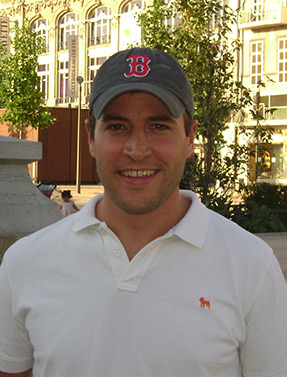 From the article: The Environmental Defense Fund in a statement on Friday said the arrest points to the need for greater monitoring by the National Oceanic and Atmospheric Administration, which oversees fishing within 200 nautical miles of the U.S. through the National Marine Fisheries Service. “This arrest and these allegations make it clear that NOAA must start an effective fishery monitoring system, not continue the underfunded program it has had in place for years,” said Joshua Wiersma, northeast fisheries manager for the Environmental Defense Fund. Read the rest here Who is Joshua Wiersma? Read about him here 15:38
From the article: The Environmental Defense Fund in a statement on Friday said the arrest points to the need for greater monitoring by the National Oceanic and Atmospheric Administration, which oversees fishing within 200 nautical miles of the U.S. through the National Marine Fisheries Service. “This arrest and these allegations make it clear that NOAA must start an effective fishery monitoring system, not continue the underfunded program it has had in place for years,” said Joshua Wiersma, northeast fisheries manager for the Environmental Defense Fund. Read the rest here Who is Joshua Wiersma? Read about him here 15:38
Environmentalists are upset over NEFMC Georges Bank vote
 Peter Shelley, senior attorney for the Conservation Law Foundation, charged that the council ignored years of scientific data and analysis and “caved to industry pressures” regarding Georges Bank. (The council did approve four other areas of habitat protection.) “The council hammered the final nail into the coffin of what could have been a landmark victory for ocean habitats protection in New England,” Shelley wrote on his organization’s web site. Dr. Sarah Smith, a member of the Fisheries Solutions Center at the Environmental Defense Fund, wrote The Standard-Times in an e-mail, “We are disappointed that the council,,, Read the rest here 09:14
Peter Shelley, senior attorney for the Conservation Law Foundation, charged that the council ignored years of scientific data and analysis and “caved to industry pressures” regarding Georges Bank. (The council did approve four other areas of habitat protection.) “The council hammered the final nail into the coffin of what could have been a landmark victory for ocean habitats protection in New England,” Shelley wrote on his organization’s web site. Dr. Sarah Smith, a member of the Fisheries Solutions Center at the Environmental Defense Fund, wrote The Standard-Times in an e-mail, “We are disappointed that the council,,, Read the rest here 09:14






